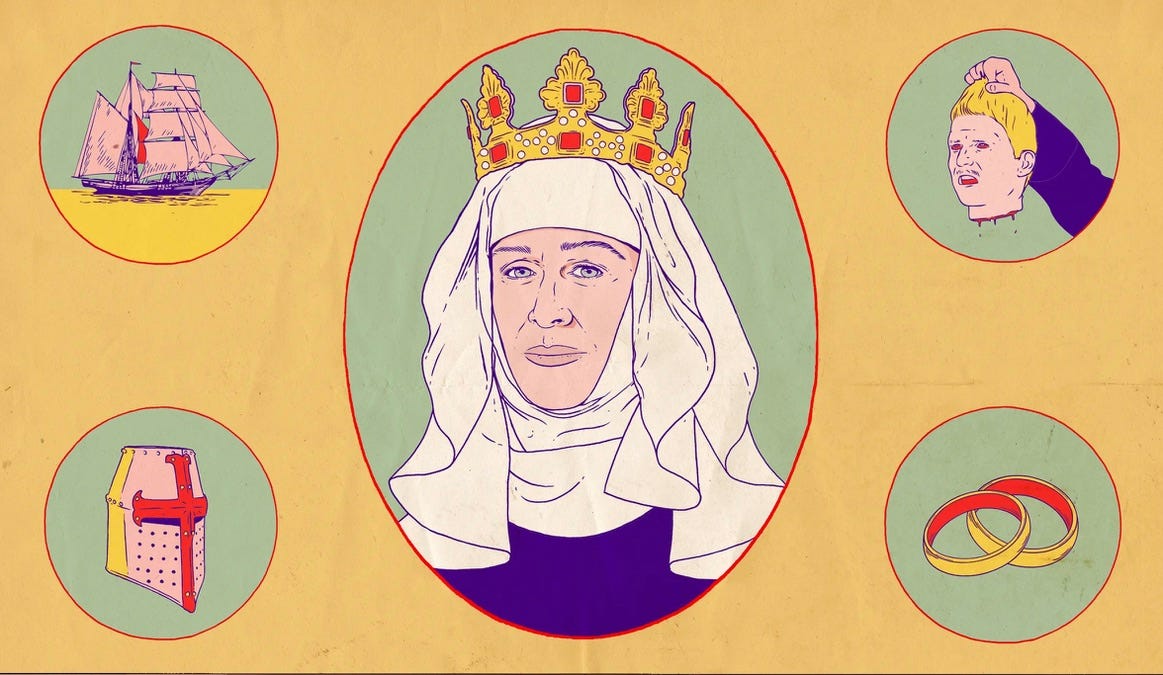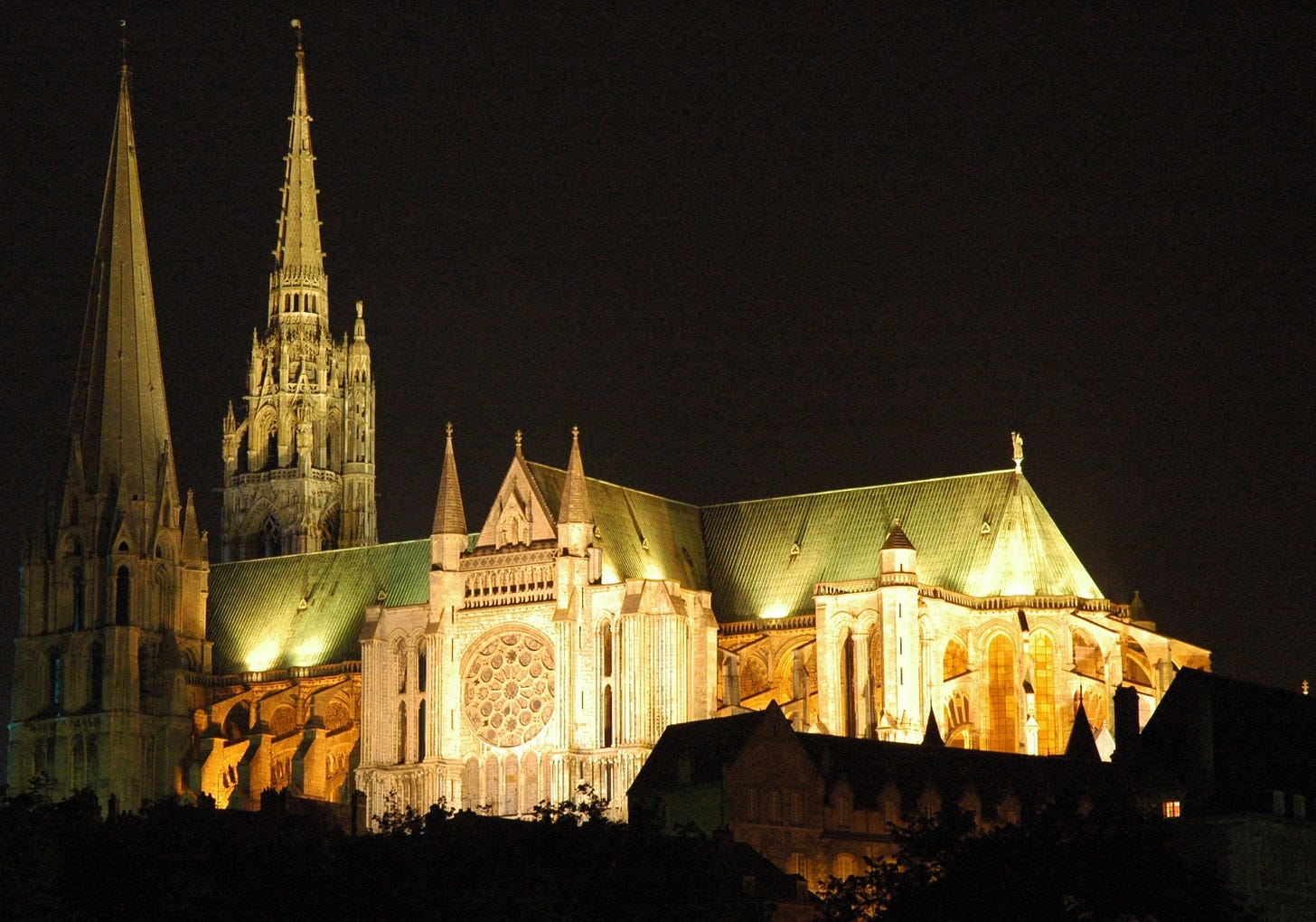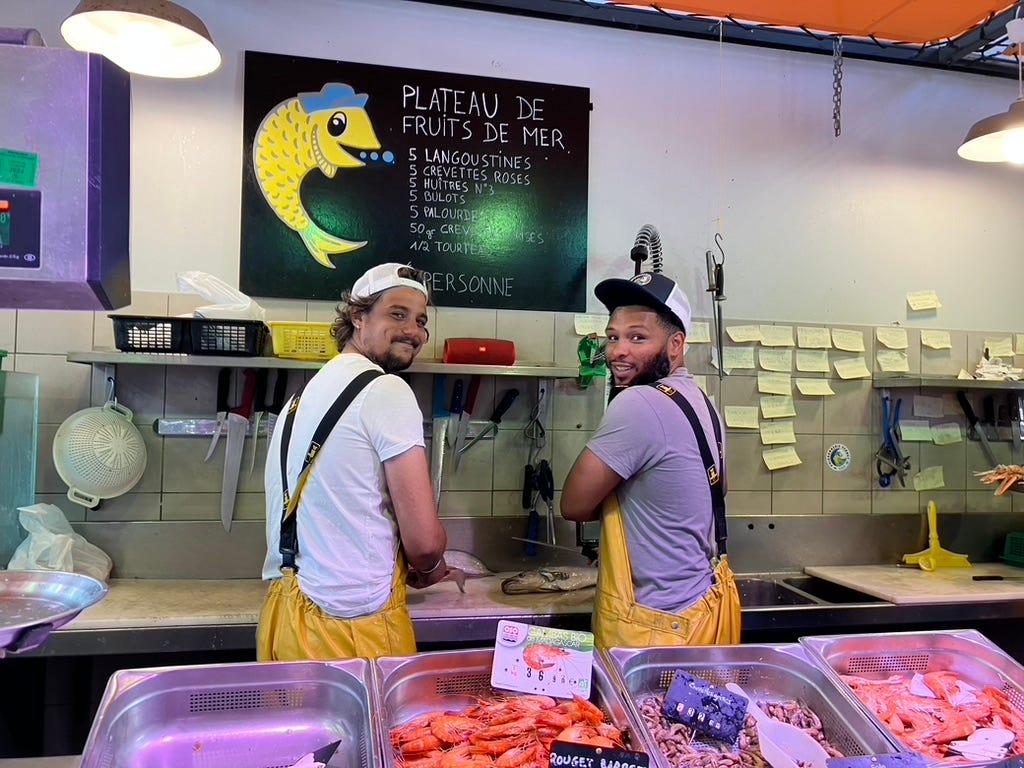Testing My Frenchness
The first hurtle of citizenship comes this week. Souhaitez-moi bonne chance.
This Tuesday evening, I will drive an hour east, to Chartres, to take the first of two tests required to apply for French citizenship. This one is the language portion, and I am not overly worried about the outcome. My written French is atrocious but they’re looking for comprehension and context more than poetry. I have extemporized about American politics, live on TV, in French, with no real way to prepare, and somehow managed to make myself understood. As long as I brush up on my prepositions, I think I am going to be OK here.
After the test, whose oral and written portions last about two hours, I will go find a split-timber tavern somewhere in Chartres’ historic center for lunch, and then I will cruise through the cathedral before getting back on the road home. That 12th century building, with its mysterious architectural choices and possibly Druidic past, always adds the gas of wonderment to my human tank. I believe it has legitimate juju, so kicking off my citizen #journey there is intentional. I will light a candle and ask Chartres to bless my path forward, as she has for so many pilgrims for the past 900-ish years.
I will need whatever heavenly hosts I can lure for the next hurtle, which is the citizenship interview. Its date is not yet fixed. Only once my entire dossier is completed, only after I (hopefully) pass the language test, will I wait for them to invite me. It’s a convocation and I cannot say no to the date and time they propose.
That test is a conversation that will cover a tossed salad of French subjects: history, culture, geography and politics. Because I spent most of my higher education reading Marxist struggle literature from the global south, I do not have a solid base in French history or culture, other than having read French newspapers pretty regularly since 2012. I don’t know much about the geography. They keep reforming how many territories and departments there are. My ex could recite the whole map, which came in handy when you were looking at post codes on the back of wine bottles, wondering if you should order a few cases in the mail. Now I have Google.
French history is long and complicated and all of it, too, is up for grabs on the day of the test. France didn’t just have a one-and-done revolution like we did in America, even if their first act kicked off at around the same time and with some of the same contours that ours did. There were a lot of back-and-forths between aristocracy and monarchy and empire in France, before they arrived at representative democracy. I don’t honestly know how many Napoleons mattered after the First, and when and why. Neither does almost every French friend of mine, but that’s not the point.
I’m extra nervous because I already have experience with how French institutions like to break people down who come to ask for something. I know of their mindfuckery when it comes to testing, how they like to fail people the first time just to remind them who’s boss. I know how instinctively they say no before yes and like to make you dance to prove how much you really want whatever it is you’re applying for.
This test stands or falls on the live human opposite me in that room. It is a highly subjective experience, so what I wear, how I smile at my interlocutor, and my body language will be scrutinized as much as what comes out of my mouth. Citizenship is about the most dead-serious thing you ask for as a 21st century human, with irrevocable rights and duties, so the stakes are high. I’d expect nothing less. The problem is, I may get a mean girl. It wouldn’t be the first time.
“It totally depends on the mood of the person you end up with,” said Tania, a lovely colleague of Michel’s, whom I spoke to the day before yesterday after he put the two of us in touch. She is Algerian, already living and working in France, and a few steps ahead of me in the naturalization process. She was full of good advice and sources for free sample tests and helped me better frame a few points in my backstory that might come up in the chat.
Indeed, I might be asked to list major rivers, or explain what happened in 1905, tick off French pop singers (no problem there), or tell them which principle I would add to the Big Three of Liberté, Égalité, Fraternité if I could. Tania told me that the answer to that one must always be laïcité, or secularism.

Good to know, because it’s not what I would have volunteered. When I first read the question on one of the sample tests, as I sat there trying to come up with something morally federative and upstanding, I toyed with squishy ideas like “kindness” or “good faith.” These are two values that I really do believe are essential to sharing a country in as much peace as possible.
This emphasis on secularism feels especially pointed towards anyone Muslim. Islam is the dominant religion in a large number of France’s former colonies, and it is a religion about which France has a special paranoia. There is a lot of karma in the country with the largest Muslim population in Europe, quite a lot of it painful even before you get to the internment camps for Algerian Muslims who supported the French side in the war, or Le Bataclan or Charlie Hebdo or Samuel Paty. But this insistence on secularism as the fourth pole of the Republic for anyone coming in, feels twitchy and punitive all the same in a country where a whole lot of the bank holidays are Catholic, and where they usually take down the municipal Christmas decorations on the Epiphany.
Tania also explained that I must be careful not to show too much attachment to my native land. This is a tough one for me, as my Americanness is one of my favorite things about myself.
An important clarification: “My Americanness” is a construction in absentia, built like a bespoke suit out of the things I love the most about my culture, leaving behind the things I don’t like so many extra cuttings on the floor. When I proclaim my Americanness to a French person, usually in a conversation where we’re comparing something or other about our two native cultures, I ditch American incuriosity. I do not feature our xenophobia, our racism, our unconscious machismo, or our anti-intellectualism. I want to represent the America of James Baldwin, not the Kardashians. I lean into our historic diversity, our friendliness, our peppy can-do spirit, our independence, and the cosmopolitanism of New York City, where I was born, and Los Angeles, where I was raised.
Cosmopolitanism is really the fourth pole I’d want to add to the Big Three, which I will now simply tend to internally, like a tiny secret campfire in my heart. It’s not the same thing as integration. France asks its citizens to integrate. This is expressly described as subsuming cultural difference into a universalist idea of Frenchness. I am not the first one to point out that there is a lot of unacknowledged whiteness and Catholicism bound up in that notion.
It bothers me because it’s so obvious to me that swirling makes a society or a country or any institution stronger and more interesting than puréeing. I want the contrast of tastes and experiences and different traditions of ingenuity from other countries and lifeways valorized, so they can benefit the rest of us as we lurch forward together like a ragbag with a destiny we elected to share.
I believe we get stronger through addition than subtraction. The more we add to our soup, the healthier it is. Maybe I wouldn’t think that if I grew up on a plain somewhere with three hundred people in my town, like where I live now. But my American mindset was formed in dense immigrant cities with whole neighborhoods taking on the flavors of somewhere else. I am always especially inspired and enriched (and hungry) in Chinatowns, in Mexican-American markets, in Korean spas purpose built to serve the exigencies of people of Korean descent. I want that plurality, especially as we become ever more networked and linked across the planet. I’m interested in it. I’m not threatened by it.
Still, when I am asked in this interview, as I inevitably will be, why it is I want to become French, of course I won’t tell them about my quibbles. I will tell them the very true story of Saint-Maxime.
I never thought about citizenship much when I was back in Paris. Granted, the world was a little calmer then. And my comings and goings to other places was more frequent.
I feel the bonds of community fiercely here in this tiny place, where I love my neighbor even if she’s an anti-vaxer, where I attend every vote count just to be part of our wee democracy. Maybe I feel this because I created those bonds so quickly, so their existence is still remarkable to me. Or maybe I feel this because those bonds are so all-encompassing. Les maximiens are who I spend the vast majority of my time with. We often remind each other when we are together, usually at some point just in passing, how lucky we are to have found each other in this big forest. How random, and how providential.
That is something worth committing to.






We live in a bedroom community of 1300 inhabitants, and although I was involved in some local associations when our girls were kids, I've never felt much sense of community. Then we bought a weekend house in a tiny "hameau" that is part of an also tiny village, and we were swept up in a much warmer atmosphere -- despite the fact that it is fairly right-wing. Oh well, nothing's perfect.
How did it go?